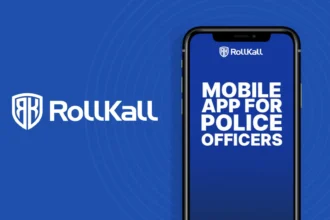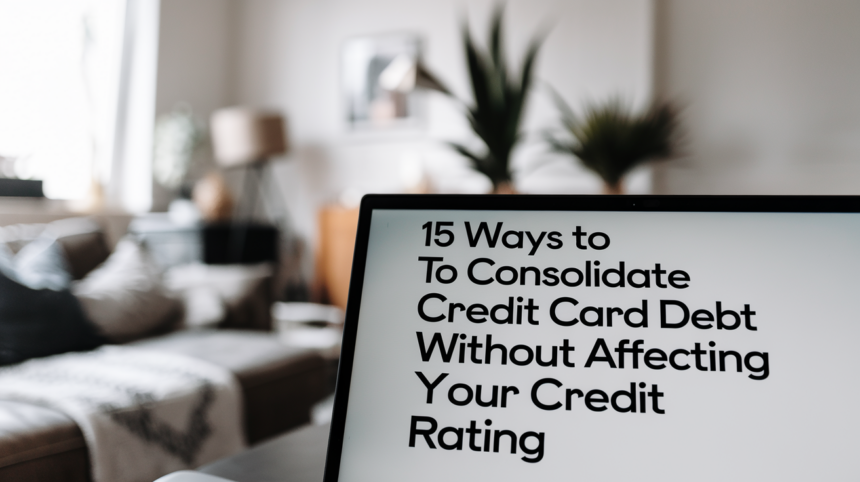Credit card debt can be a heavy burden that keeps you up at night and makes you worry about money. Even though consolidation can help, you need to make sure you do it right so you don’t hurt your credit score. The 15 methods in this guide will help you consolidate credit card debt without hurting your finances.
How to Figure Out How Credit Will Affect Consolidation
It’s important to know how debt consolidation can affect your credit before you start using it. Consolidating debt can make payments easier and could lower interest rates, but it also means getting new credit accounts or making changes to ones you already have. These things might have a short-term effect on your credit score. But these effects can be lessened with strategic planning.
1: Moving the balance
A balance transfer is one of the most popular ways to combine debts. This balances from several credit cards to one card with a smaller interest rate. This can save you a lot of money, but keep in mind that there are fees and promotional times. It is very important to plan when to make the transfer and pay off the amount so that the introductory rate doesn’t end.
2: Get a personal loan
A personal loan might be a good way to combine your credit card debt into one payment. It gives a lump sum to pay off current balances, so you only have to make one monthly payment instead of several. Choose a loan with a set interest rate to avoid surprises and make sure you always make your payments on time. But you need good to great credit to get a personal loan with a reasonable interest rate.
3: Home equity loan or line of credit.
If you have value in your home, you might want to look into a home equity loan or line of credit (HELOC). The home you own is used as protection for these loans, which usually have lower interest rates than credit cards. But be careful, because not paying back a home equity loan can cause the house to be foreclosed on. Before going with this choice, you should carefully look at your finances.
4: Make a plan to handle your debts.
A debt management plan is an organized way to deal with debt that involves a credit counseling service. The service talks with creditors to lower interest rates and come up with a payment plan that can be kept up. This method can help people who are having trouble making the minimum payments, but it usually means telling credit companies about the plan, which could lower your credit score for a short time.
5: Paying off the debt
Dealing with creditors to settle bills for less than the full amount owed is what debt settlement is all about. This can help you get out of debt a lot faster, but it can hurt your credit score and take longer than other options. Think about this choice only as a last measure, after you’ve looked at all of your other options.
6: File for bankruptcy
Bankruptcy is a formal process that gets rid of most debts, even credit card balances. However, it hurts your credit score and financial image in a big way. Before you file for bankruptcy, look into all of your other choices.
7: Use a credit card with low interest to consolidate your debts.
Some credit card companies offer debt transfer cards for longer periods introductory APR is 0%. Even though this can be helpful, you need to pay off the balance before the introductory time ends to avoid being charged high interest rates.
8: Make more money.
Increasing your income can help you pay off your debt faster. You could get a side job, sell things you don’t need, or look for online work. Every extra dollar helps you pay off your debts faster.
9: Make a strict budget.
Making a clear budget is an important part of successfully consolidating your debt. Keep track of your spending and income to find places where you can save money. Set paying off debt as a top priority and allocate funds properly.
10: Don’t take on more debt.
It’s important to resist the urge to add new charges while consolidating current debt. Put your attention on paying off the combined debt and getting your finances back on track.
11: Talk with your creditors
Don’t be afraid to talk to your creditors about lowering your interest rates or making other payment plans. Be polite, insistent, and ready to talk about your money problems.
12: Think about getting a debt consolidation loan.
Some lenders offer specialized loans for consolidating debt that have low interest rates. With these loans, bills can be made more easily, and you might even save money.
13. Use tools that you can find online
A lot of online tools and calculators can help you compare your debt consolidation choices, figure out how much you can save, and make a plan for paying off your debt. You can use these tools to help you make smart choices.
14: Save money for emergencies
Getting rid of debt is important, but setting up a backup fund is even more so. With this safety net, you won’t have to rely on credit cards for unplanned costs.
15: Get help from a professional
If your debt is too much for you to handle, talking to a financial adviser can help. They can look at your case, suggest good solutions, and make a custom plan for you to pay off your debts.
Conclusion
Credit card debt consolidation can help you get back on track financially, but you need to plan and carry it out carefully. You can lower your debt and improve your general financial health by learning about the different ways to do it, how they might affect your credit score, and then using good money habits. Remember that the best way to get out of debt is to be patient and persistent.
FAQs
How can I get rid of my credit card bills without lowering my score?
Consolidation can have a short-term effect on your credit score, but if you plan effects will be less noticeable. Pay attention to debt management plans, bill transfers, and personal loans that might help you without hurting your credit too much.
Which method is the best for getting rid of credit card debt?
The best way to do it depends on how much money you have. The amount of debt, interest rates, credit score, and long-term financial goals are some things to think about. Think about your choices carefully before making a choice.
Should I pay off my credit card debts all at once if I have bad credit?
If you have bad credit, it might be hard to consolidate your debt, but it’s not impossible. There may be choices like debt management plans and debt settlement, but they each have their own problems. If you want to get better consolidation options in the future, you need to raise your credit score by being careful with your money.
How long does it take to get rid of all your credit card debt?
How long it takes to consolidate credit card debt depends on the way you choose, the amount of debt you have, and how you plan to pay it back. Different ways may give you different times of results.
Is it a good idea to combine your credit card debt?
Credit card debt consolidation can be helpful if it lowers your interest rates, makes payments easier, and shows you how to get out of debt. But think about how it might affect your credit score and pick a way that fits with your financial goals.
How long does it take for my credit score to get much better after I consolidate my debt?
It takes time to raise your credit score. Your credit report will slowly show that consolidating your debts is a good idea. Credit scores go up when you consistently make payments on time, use your credit less, and have a good credit history generally.
What are the possible risks of combining your credit card debt?
There are benefits to merging, but there are also risks. After consolidation, relying too much on credit can slow down growth. Some ways of consolidating debt, like home equity loans, also put your assets at risk. Think about the pros and cons carefully before making a choice.





